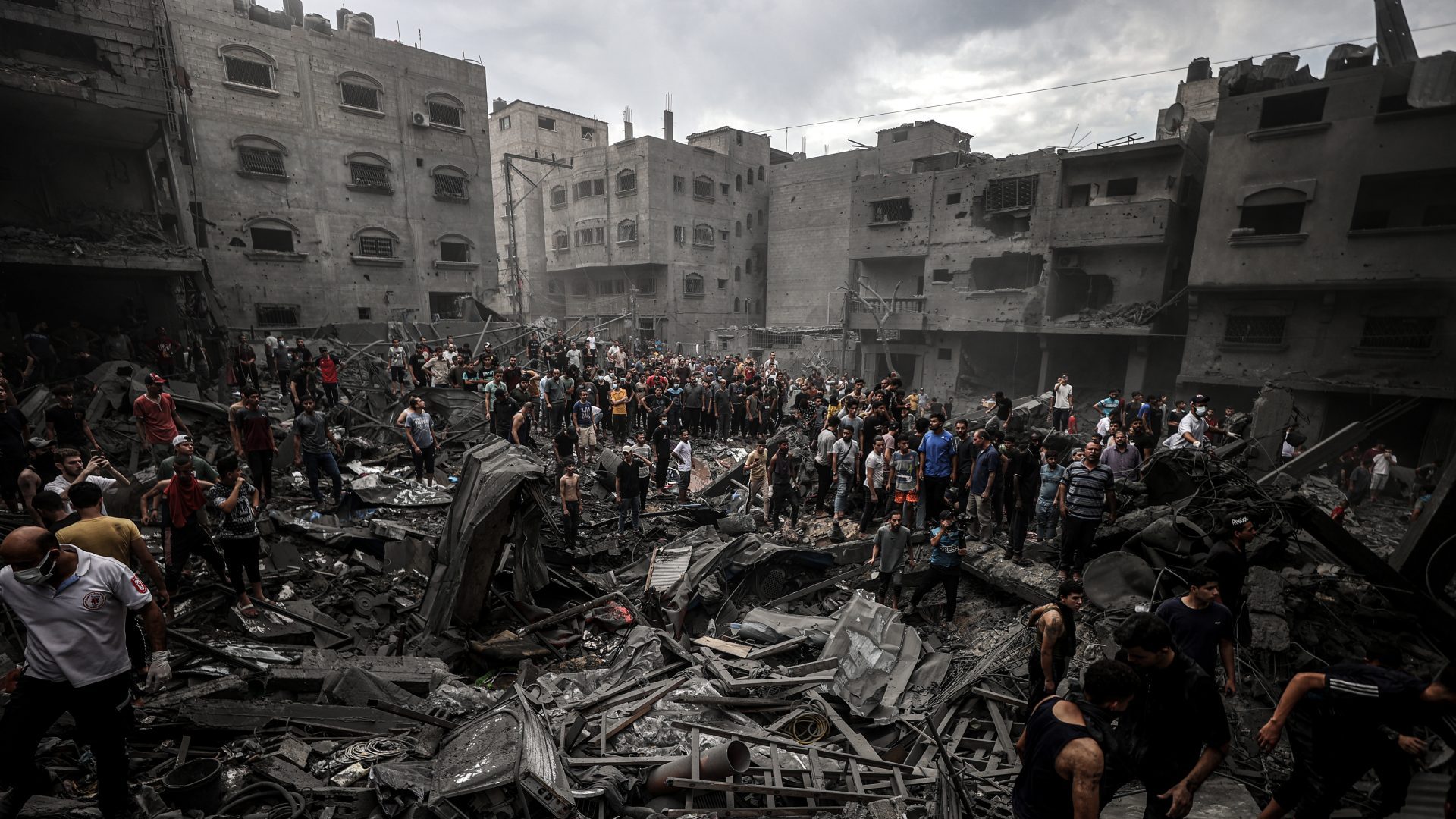By the time you read this, the ground war in Gaza may have begun in earnest. If Israel stages an offensive aimed at destroying Hamas’ military capabilities north of the Gaza River, it risks killing thousands more civilians than killed to date, incurring hundreds of military casualties itself and endangering the lives of the surviving Israeli hostages, held in that area by Hamas.
If you think you know what it will look like, from the scenes of rubble and broken bodies surging across social media, think again. What we’ve seen so far is the result of targeted airstrikes and misfired rockets. Ground combat works differently – and I was in Gaza during the 2014 war so, like its inhabitants, I know what to expect.
In 2014, in the suburb of Shuja’iyya, after Hamas hit their armoured vehicles with anti-tank weapons, the Israelis called in a walking barrage of artillery shells to level the area they were hiding in. Seventy civilians were killed; the IDF lost 11 soldiers and Hamas, reportedly, 35 fighters. A few days later we tried to film there. It was a dead zone: impossible to approach.
But Shuja’iyya – which had 90,000 inhabitants – will look like a minor skirmish compared to an attempt to take and occupy Gaza City, which is home to a million people.
Unlike some experts, I believe Israel could militarily defeat Hamas. That won’t mean fighting hand to hand through the tunnel network. It will mean using deadly conventional weapons to make the tunnels uninhabitable, a task made easier because Israel can cite the principle of “distinction” under international law. And it won’t mean fighting house to house: it will mean – as in Shuja’iyya in 2014 – flattening the city block by block. Doing so without the complete and permanent collapse of vital infrastructure is impossible.
The question is: what then? What is Israel’s “theory of victory”. Those familiar with the details of Joe Biden’s visit to Israel came away saying: it doesn’t have one.
It cannot occupy Gaza. It cannot expel the population of Gaza to Egypt, because both Egypt and Jordan have firmly insisted this is a non-starter, and it would be criminal under international law. It cannot install the Palestinian Authority as an occupying force without destroying its legitimacy and endangering stability in the West Bank.
And beyond these practical and legal problems there is a risk that, with the IDF trapped in an urban wasteland, facing a population whose hospital, sanitary and energy infrastructure has collapsed, one or more of Iran’s proxies decides to escalate the conflict into a regional war.
That is why, for me, the semantic debate about “ceasefire” versus “humanitarian pause” misses the point. Of course the fighting should stop to allow aid in and people out. Of course Israel has the right to go on pursuing Hamas to its destruction: nobody is asking them to sign a truce with these killers.
What matters most is to dissuade the Netanyahu government from invading Gaza.
But let’s be clear as to the costs already incurred: the West – above all the Anglosphere – has massively lost influence and goodwill across the global south over its failure to restrain Netanyahu in the prosecution of the war. Though Biden and Blinken have played the hand dealt to them as well as could be expected, the entire episode represents strategic failure.
It gives Russia yet another region of instability where it can do its worst. It also gives the tiny forces of extreme Islamism and the pro-Russian left a whole new set of people to mobilise on the streets.
I am outraged by the sermons preached in a small number of British mosques, calling for God to “purify the Al-Aqsa mosque from the filth of the Jews”. I am disgusted, but not surprised, by calls from far-left activists for “intifada until victory”. As for the self-styled anti racists who declared themselves “exhilarated” by the beheading of Jewish babies, I have nothing but contempt.
But these are people who’ve thought things through, and know what they are doing. The scariest thing of all is those teenage ghouls ripping down posters of kidnapped Israeli kids, with smiles on their faces as if they were clearing up litter.
This is being done on instinct, by people with little political education. The instinct is anti-Semitism at its most visceral: the subconscious desire for Jews not to be there; the inability to process the idea that Jews can be victims of racism at all. “Every one must be removed” muttered one young lad in London’s West End. Did he mean the posters or the Jews? Every historian who has studied Nazism knows the function such double meanings play within genocidal thought.
You can lament how we got here. But the task of politicians is to play what’s in front of them, which is the catastrophic loss of Western credibility, and the chance for Russia, China and Iran to destabilise Western democracies using the anger of people the system routinely ignores.
There are three conclusions. We need an international peace conference to make Palestinian statehood a reality. As a first step, we need to persuade Israel to stop bombing long enough to allow aid in and people out. Meanwhile, dissuading Israel from invading Gaza is not just an act of humanitarian decency, but an act of strategic necessity.










